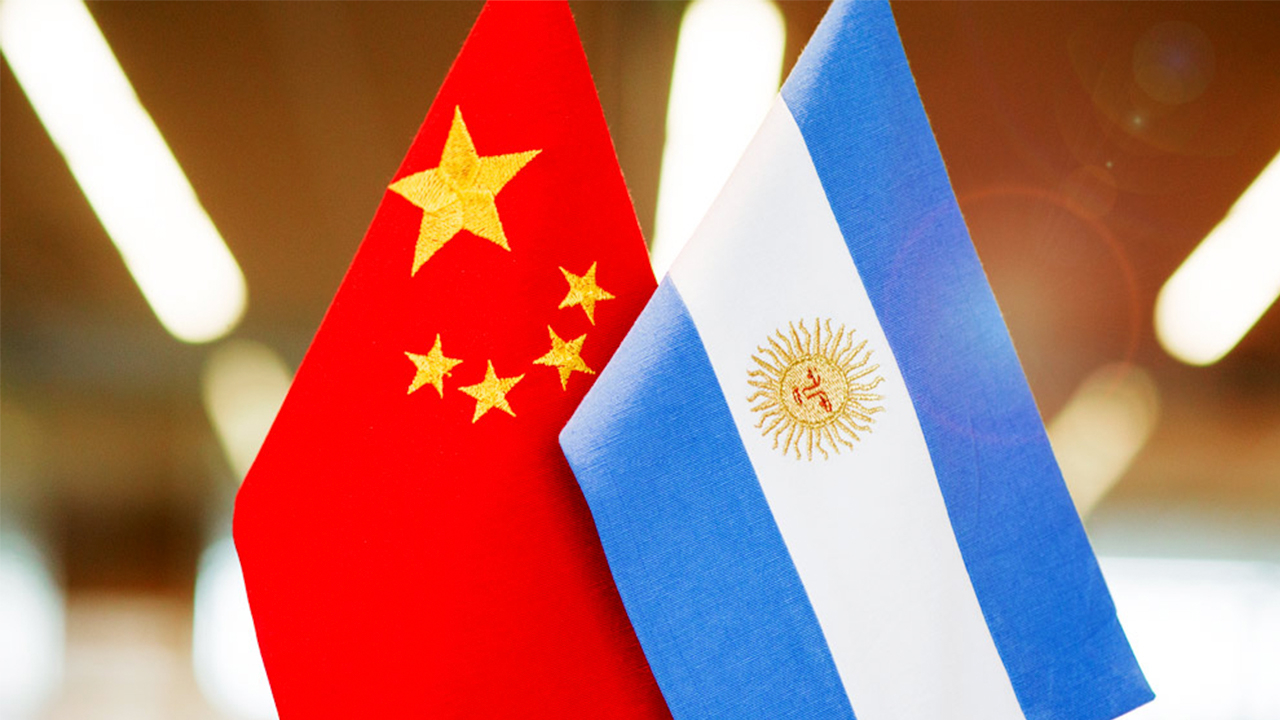RIO DE JANEIRO, BRAZIL – China passed Brazil as Argentina‘s main trading partner for the first time in April and repeated the result in the following two months.
The trend is perceived as temporary, as it is closely linked to the coronavirus pandemic and the economic challenges Latin countries are experiencing. But this does not mean it may not become permanent at some point, according to experts – there are plenty of reasons for this.
In June, while Argentina’s exports to China grew by 51.7 percent, to Brazil they dropped by almost as much – 48.9 percent. Argentina’s imports from these countries dropped by 10.8 and 30.3 percent, respectively.

This trend shows that the Chinese share of Argentina’s international sales grew more than Brazil’s: “This shift in the list is a cyclical issue, which could even last longer, given the severity of the Argentine crisis,” says Arthur Mota, an economist with Exame Research.
Argentina’s long-standing domestic crisis had already affected its imports in general. That is the structural reason for this trend.
“In this wake, Brazil also needs to reduce, because there is an agreement between the countries according to which for each dollar exported, one and a half dollars may be imported, and that simply leads to exports dropping and, consequently, imports too,” says José Augusto de Castro, president of the Foreign Trade Association of Brazil (AEB).
The trade agreement between Brazil and Argentina on auto parts and cars, which essentially represents all trade between the countries, is expected to favor the country by only 50 percent.
“Another point is an aspect that we can perceive as conjunctural, but I think it will last for a long time, which is how these countries will deal with the economic impact of the pandemic,” says Professor Pedro Brites, of the FGV’s School of International Relations.
China has been posting a faster and more solid than expected economic rebound compared to other countries, such as Brazil, Brites says. Meanwhile, Brazil, which was not well before the pandemic, is still an unknown in terms of overcoming the coronavirus crisis.
“These two joint phenomena – the Chinese rebound and Brazil’s failure to bounce back – could favor an even greater proportional increase of the Chinese presence in Argentina,” Brites says, “because it is increasingly difficult to think of a scenario in which Brazil can position itself as a regional leader and offer alternatives that Argentina needs in the midst of the serious crisis it is in.”
Mercosur’s strengths and weaknesses
Trade between Brazil and Argentina is almost entirely based on the automotive sector. The industry in both countries is designed for this relationship, regardless of MERCOSUR, says Castro.
On the other hand, experts say that Argentine exports to China are more diversified in consumer goods and occasionally capital goods, which also favors the Chinese in the current climate.
However, for China to become a real threat to Brazil in this regard, it would need to be willing to compete with the country in the automotive sector, which does not seem to be in the country’s plans – for now.
“Structurally it is still difficult to foresee this, as we are neighboring countries, MERCOSUR members, and this is very significant in terms of trade,” says Mota.
But the chances are there, not least because China is already present in Chile’s auto parts sector, for one. “I can’t see China taking on this sector as Argentina’s main partner in the short term, but it’s true that the Asian country has a strategy to be able to internationalize its automotive companies. It’s just not a priority now,” says FGV’s Brites.
In addition to the geographical advantages and disadvantages related to the little diversification of trade between Brazil and Argentina, the way the two countries have been relating since the Peronist Alberto Fernandéz became president in 2019 also weighs on this scenario, particularly in the long term.
“While Argentina perceives MERCOSUR as a space for coordinating economic policies, for instance, Brazil sees it as an obstacle to signing agreements with other regional partners,” Brites says, alerting that Brazil is not exploring substitute markets for its high value-added products.
“Argentina is virtually a stronghold where these exports of Brazilian industrialized products still prevail, which has a whole chain behind it, generating more jobs, building more complex technology,” he says. Losing that chain would mean one more step toward a return to producing primary commodities.
Source: Exame

